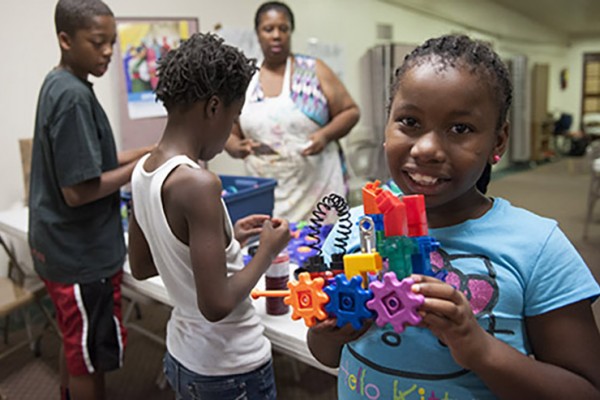In the media: Washington University faculty offer commentary, expertise on unrest in Ferguson
Recent events in the St. Louis suburb of Ferguson, Mo., call for careful reflection and important dialogue. Members of the Washington University in St. Louis community are weighing in with commentary and editorials, which are compiled here, along with expert comments offered in response to media inquiries.
Wash U Expert: Former immigration agency chief counsel defends legality of Obama’s pending enforcement plan
Steven Legomsky staunchly defends the legality of DACA and of the similar initiatives that the President Barack Obama is reportedly considering.
‘Encountering the City: The Urban Experience in Contemporary Art’
Today, for the first time in history, the majority of the world’s population lives in cities and urban areas. This fall, the Mildred Lane Kemper Art Museum will present “Encountering the City: The Urban Experience in Contemporary Art.” The exhibition, which encompasses a wide range of media, explores how artists respond to, and grapple with, our rapidly changing urban landscape.
WashU Experts: Faculty available to comment on Ferguson unrest
As the St. Louis community grapples with recent events in the nearby suburb of Ferguson, Mo., a number of Washington University in St. Louis faculty members are offering their expertise, commentary and insight in hopes of promoting constructive dialogue on a number of challenging issues.
#feeling sick: Can Twitter help better identify foodborne illness cases?
An estimated 55 million to 105 million people in the United States suffer from foodborne illnesses each year, resulting in costs of $2-$4 billion annually. What if Twitter could be used to track those cases and more quickly identify the source of the problem? A new analysis by a researcher at Washington University in St. Louis Brown School shows that new technology might better allow health departments to engage with the public to improve foodborne illness surveillance.
Building on success
The inaugural Health and Engineeering Careers Summer Camp took place in late July at West Side Missionary Baptist Church in St. Louis. Numerous Washington University in St. Louis groups co-sponsored the event, which aimed to encourage underrepresented children to focus on science and math subjects. Here, 10-year-old Deja Stallworth proudly shows off the robot she made.
Raichle among Kavli honorees at White House
Marcus E. Raichle, MD, was among a group of 2014 Kavli Prize winners honored with a White House reception in late July. Raichle, the Alan A. and Edith L. Wolff Distinguished Professor, was one of three scientists awarded the Kavli Prize in Neuroscience on May 29.
Bears football begins season first-and-2,539
Coach Larry Kindbom and 12 members of the Bears football team hiked up Pikes Peak this summer — just because it was there. What has become an annual summer ritual for the senior members of the squad also turns into a rich life experience.
Study reveals how Ebola blocks immune system
The Ebola virus, in the midst of its biggest outbreak on record, is a master at evading the body’s immune system. But researchers at the School of Medicine and elsewhere have learned one way the virus dodges the body’s antiviral defenses, providing important insight that could lead to new therapies.
Potential drug therapy for kidney stones identified in mouse study
New research in mice suggests that a class of drugs approved to treat leukemia and epilepsy also may be effective against kidney stones. Pictured is the surface of a kidney stone with calcium oxalate crystals.
View More Stories

